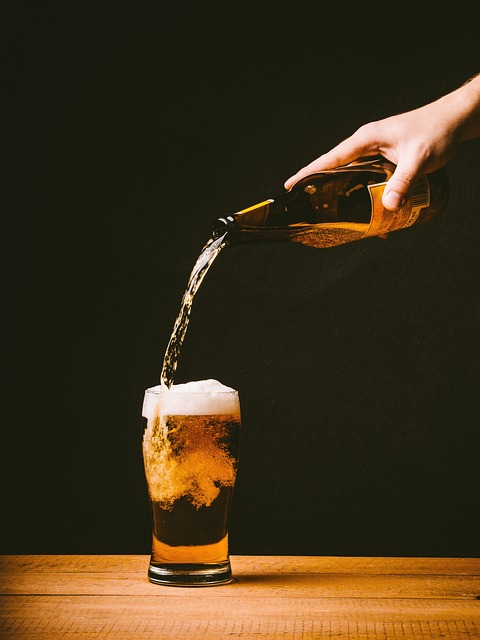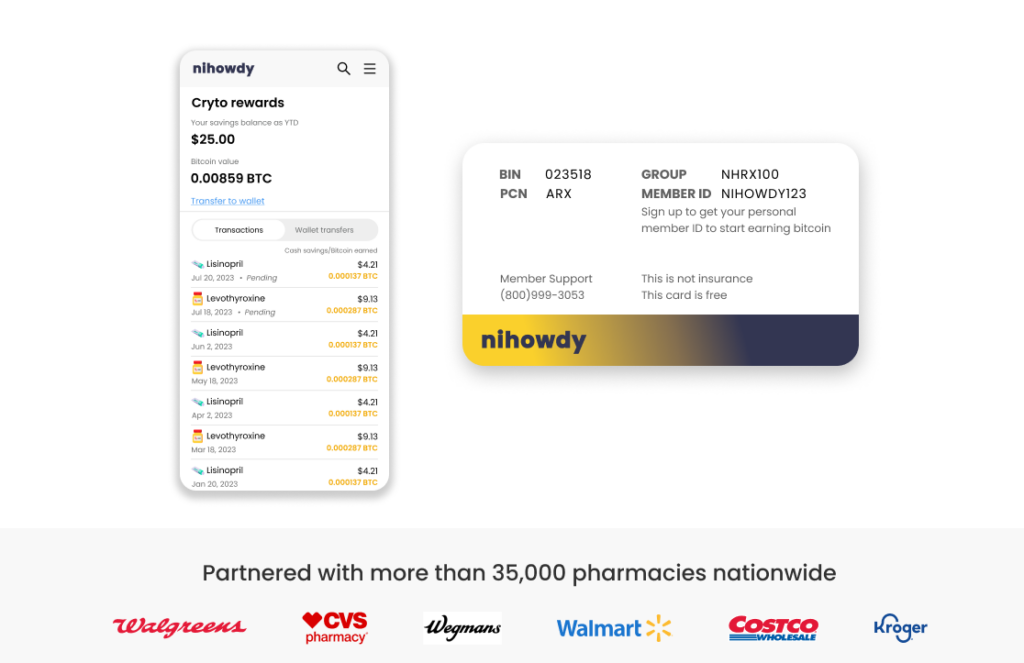Can I Skip a Dose of Lexapro to Drink? Weighing the Risks


Wondering, “Can I skip a dose of Lexapro to drink?” The simple answer is that it’s not recommended. Lexapro should be taken as prescribed to maintain its therapeutic effects, and skipping doses can lead to withdrawal symptoms and affect your treatment. This article will explore the risks associated with missing a dose of alcohol and what alternatives exist for safely enjoying social occasions.
Key Takeaways
Skipping a dose of Lexapro (escitalopram) for alcohol consumption is risky and can reduce the medication’s effectiveness and lead to withdrawal symptoms such as irritability, nausea, dizziness, and more.
Mixing Lexapro with alcohol can heighten symptoms of depression and anxiety, impair judgment and coordination, and lead to increased risks like liver damage and suicidal thoughts.
It’s essential to communicate with healthcare providers about the risks of drinking while on Lexapro and explore alternatives such as moderating intake, understanding personal risks, or considering different treatment options.
Skipping a Dose of Lexapro: Is It Safe?

Navigating social gatherings while on Lexapro can be tricky. The temptation to forgo a dose for the sake of having an alcoholic beverage may seem harmless, but it’s not recommended. Escitalopram oxalate, known commercially as Lexapro, is meant to be taken consistently in the management of both depression and anxiety symptoms. Interrupting your medication regimen with a skipped dose could reduce its efficacy.
Abruptly stopping or missing doses of Lexapro might lead to withdrawal effects such as:
Irritability
Nausea
Dizziness
Vomiting
Nightmares
Headaches
Neglecting doses of escitalopram oxalate — a selective serotonin reuptake inhibitor — increases the chances that you’ll experience a resurgence in your symptoms. This scenario often worsens conditions for those under treatment with selective serotonin reuptake inhibitors.
Consequently, although bypassing one dosage may appear harmless if intended for alcohol consumption during special occasions, doing so presents considerable risks that surpass any perceived short-term gains.
Missing a Dose: Impact on Treatment
It’s essential to stick with a consistent Lexapro regimen to experience the full benefits of the medication, including mood enhancement and reignited interest in daily activities. Treating depression and anxiety with this medication is similar to running a marathon — it requires ongoing commitment and perseverance. Disruptions caused by missed doses can hinder the effectiveness of Lexapro, especially if those lapses are due to alcohol consumption.
Consider how interrupting a runner mid-race would throw off their rhythm. Similarly, skipping a dose of your medication can stall your treatment for depression or anxiety. For best outcomes in managing these conditions, you must adhere closely to your prescribed course of treatment without deviation.
Potential Side Effects of Skipping a Dose
Discontinuing your Lexapro treatment abruptly not only diminishes its efficacy but can also induce a variety of unwelcome side effects. Stopping escitalopram suddenly might lead to withdrawal symptoms that include:
irritability
nausea
dizziness
vomiting
nightmares
headaches
paresthesias
This abrupt discontinuation could be likened to the jarring stop experienced when halting a fast-moving vehicle, which results in discomfort.
Omitting a dose of escitalopram may prompt both withdrawal symptoms and potential recurrences of mental health issues being addressed by the medication. If you forget to take your dose of escitalopram, it’s recommended that you ingest it as promptly as possible unless the time is nearing for your subsequent dosage. This helps prevent overdose and limits potential side effects. Consider these ramifications before deciding against a dose favoring an evening drink.
Drinking Alcohol While on Lexapro: Understanding the Risks

If you’re on Lexapro and contemplate having a drink without missing your medication, think again. Combining alcohol with Lexapro is not safe. This combination could potentially aggravate depression and anxiety symptoms by altering the chemical equilibrium in the brain, akin to throwing oil on a fire. The potential dangers of consuming alcohol while taking Lexapro include:
Enhanced feelings of drowsiness or fatigue
Decreased ability to make sound judgments and coordinate movements
Deterioration of depression and anxiety symptoms
A heightened chance for suicidal ideations or actions
Potential liver damage
Before deciding to drink any amount of alcohol during treatment with Lexapro, you must speak with your healthcare provider. They can offer tailored recommendations considering your particular health circumstances.
When Lexapro is mixed with drinking habits, it may intensify symptoms related to depression and anxiety as well as amplify side effects and risks significantly. This situation mirrors a harmful cycle where each instance of consumption might only worsen one’s condition further—making even an occasional glass of wine seem less appealing once aware of the compounded hazards entailed by combining Lexapro with alcoholic beverages.
How Alcohol Interferes with Lexapro’s Effectiveness
Consuming alcohol, which impacts brain chemicals that regulate mood, may diminish the efficacy of Lexapro if taken simultaneously, potentially intensifying symptoms of anxiety or depression. It’s akin to trying to drive a vehicle while also engaging the brakes. It can obstruct any forward movement in your treatment.
Imbibing alcohol could negate the therapeutic advantages provided by Lexapro. More alarmingly, mixing alcohol with Lexapro might amplify depressive symptoms and elevate the likelihood of experiencing suicidal thoughts. Thus, despite the allure of enjoying a night out drinking, it has potential ramifications that could impede progress in your treatment and exacerbate existing conditions.
Potentially Dangerous Side Effects of Mixing Lexapro and Alcohol
Mixing Lexapro with alcohol can exacerbate your depression symptoms and lead to serious side effects, including liver damage, heightened suicide risk, or even a possible overdose. Alcohol has the potential to intensify depressive states, which in turn may increase suicidal tendencies and actions. In extreme situations, such interactions could trigger aggressive behavior.
When you consume alcohol during treatment with Lexapro, you might experience increased lethargy, impaired coordination skills, and diminished mental alertness. It is of utmost importance for individuals to disclose their level of alcohol consumption to their healthcare provider if they notice worsening depression or emergent suicidal ideas. Healthcare professionals need to carefully weigh the implications of consuming alcohol while on this medication against the patient’s clinical presentation and how both substances may interact.
Thus, before considering drinking when on Lexapro therapy, remember there are significant risks tied to combining these two substances.
Strategies for Managing Alcohol Consumption While on Lexapro

While it’s clear that mixing Lexapro with alcohol carries risks, navigating social scenarios where alcohol is present may pose a challenge. What should you do? Moderating your intake and seeking guidance from your doctor about consuming alcohol while on Lexapro can help you manage the situation responsibly. Plan for social gatherings to decide how you will approach the presence of alcohol—whether that means abstaining entirely, limiting yourself to a small amount, or letting others make their own choices regarding drinking.
Employing cognitive-behavioral techniques can empower you to:
Recognize and counteract the pressures associated with drinking in social settings
Develop strategies for safely dealing with situations where alcohol is involved
Ensure that indulging in social activities doesn’t hinder your progress with treatment
Deploying these methods not only helps you stick to your treatment plan but also allows you to engage in enjoyable social interactions without compromising.
Communicating with Friends and Family
Beginning a dialogue regarding the limitations of alcohol use while taking Lexapro with those you care about is an essential measure in overseeing their alcohol consumption. This approach tends to be more successful when it builds on the individual’s strengths and emphasizes positive elements of life. It’s crucial to select a suitable moment for this conversation, ensuring that it occurs privately and at a time when your loved one has not consumed any alcohol.
It is vital during these conversations to demonstrate empathy, avoid judgmental tone, respect health choices made by your loved one, and engage in active listening. Such an exchange promotes shared understanding and helps reveal issues arising from substance use. Patience plays an indispensable role, as discussions concerning medication and drinking behaviors can trigger defensiveness. Thus, changing habits might require persistence and ongoing conversations.
By opening up such dialogues thoughtfully, you create a nurturing backdrop for effectively handling both concerns related to drinking while managing symptoms of alcohol use disorder responsibly – remembering always, if choosing to drink, do so gradually.
Alternative Ways to Enjoy Social Events
Exploring alternative ways to enjoy social events is another strategy for managing your alcohol intake while on Lexapro. One effective tactic is to make non-alcoholic beverages, including garnished mocktails, available and appealing at social events to ensure everyone feels included. Carrying a non-alcoholic drink can be a helpful strategy for engaging in social events without consuming alcohol.
Additionally, alcohol-free gatherings can utilize themes or venues such as garden tea parties or a coffeehouse setting, making the lack of alcohol less noticeable. Providing interactive activities like trivia or dance lessons alongside alcohol-free food stations can reduce the focus on drinking.
When offered an alcoholic drink, being friendly yet firm in refusing can effectively communicate your desire to avoid alcohol without causing discomfort. Exploring these alternatives allows you to enjoy social events without jeopardizing your treatment progress.
Seeking Professional Advice: When to Consult Your Healthcare Provider
Consultation with a healthcare provider is crucial before you consider mixing Lexapro and alcohol. If managing your alcohol consumption becomes difficult during your treatment with Lexapro, it’s imperative to reach out for expert assistance.
Remember that there is no shame in seeking support. Confidential guidance and recommendations for local treatment options to handle alcohol use concurrently with Lexapro are available through services such as the National Helpline provided by SAMHSA.
Assessing Individual Risk
Engaging in moderate drinking, typically regarded as up to one drink per day for women and two drinks per day for men, may be deemed acceptable while taking Lexapro by some physicians. This is contingent upon an individual assessment of your particular risk profile, which includes the potential side effects you’ve experienced and how alcohol might influence the brain’s chemical equilibrium. Your healthcare provider can guide you through your treatment process with a tailored approach that assesses whether it’s necessary to alter your drinking patterns or consider an alternative medication less interactive with alcohol.
To ensure that alcohol consumption aligns safely with your use of Lexapro or other medications, reach out proactively to your healthcare provider. They’ll help evaluate whether adjustments need to be made to how much you drink or the prescription itself, paving the way toward making well-informed choices regarding your health regimen.
Exploring Alternative Treatment Options
Consuming alcohol while managing major depressive disorder may be more feasible with different antidepressants or therapies that also effectively treat depression and anxiety. When considering a switch in medication to allow for alcohol consumption, it’s imperative to proceed with caution as new medicines can impact the treatment process for depression and anxiety differently, especially when combined with alcohol.
Alternative therapeutic options such as cognitive-behavioral therapy or counseling might be adequate substitutes for pharmacological treatments. These alternatives could potentially lower the reliance on antidepressants like Lexapro, subsequently offering greater leeway regarding alcohol intake. Thus, if maintaining control over your drinking is challenging while taking Lexapro, it would be prudent to explore these other treatment avenues by consulting with your healthcare provider.
Summary
In summary, the temptation to forego a dose of Lexapro in favor of indulging in alcohol should be approached with caution due to considerable risks. Recognizing both the hazards associated with missing doses and those related to combining Lexapro and alcohol is vital. When taking Lexapro, it’s essential to moderate your drink intake, communicate effectively about your concerns, and find other ways to relish social gatherings. Should you find this challenging, promptly reaching out for expert guidance is advised because prioritizing your health and welfare is paramount.
Frequently Asked Questions
Can I skip a dose of Lexapro to have a drink?
Avoiding a dose of Lexapro for the sake of consuming alcohol is ill-advised, as it can diminish the medication’s efficacy and potentially lead to withdrawal symptoms or a resurgence in mental health issues.
What are some strategies to manage alcohol consumption while on Lexapro?
When taking Lexapro, it is crucial to moderate your alcohol intake, discuss the limitations regarding the medication with close associates, and seek different methods of socializing to preserve a healthy equilibrium.
When should I consult a healthcare provider about alcohol consumption while on Lexapro?
You should consult a healthcare provider before mixing Lexapro with alcohol, especially if you’re having trouble controlling your drinking while on the medication.
It is always best to check in with a professional for personalized advice.
What are some alternative treatment options?
It could be beneficial to explore alternative antidepressants or therapeutic approaches that accommodate a greater allowance for alcohol use yet still effectively manage depression and anxiety.


